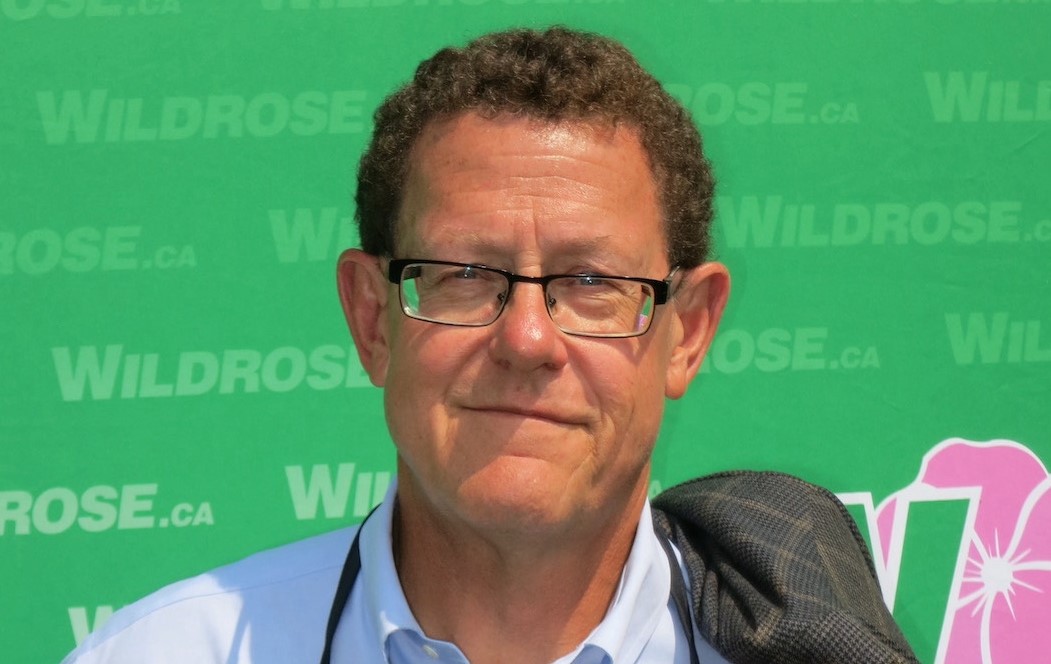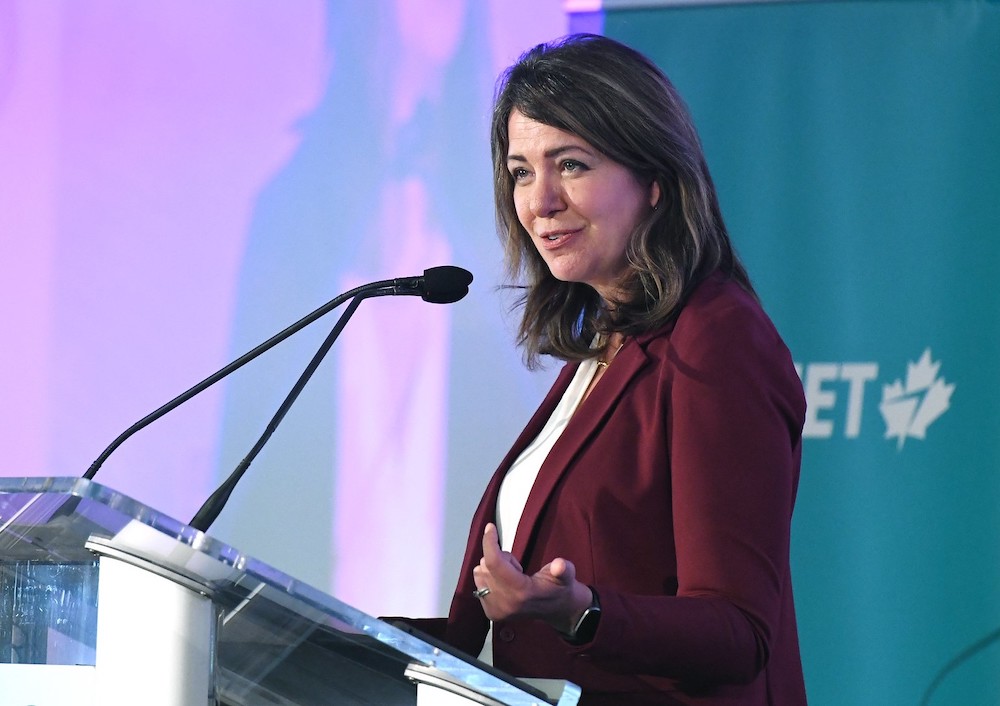Irritated by a question from an impertinent reporter about the makeup of her “expert panel” on Alberta’s energy future led by former Wildrose party president David Yager, Premier Danielle Smith snapped back last week.
“Look, he put together a panel that had over 150 CEOs,” Smith told reporters after her otherwise not-very-informative speech to the Edmonton Chamber of Commerce on Thursday.
“Of course I’m going to take advice from CEOs,” she said. “Who else would I take advice from?”
Snarky though her defence of the chair of the “Premier’s Advisory Council on Alberta’s energy future” may have been, this comment provides some insight into how Alberta’s premier thinks.
Who else would she take advice from on questions about “Alberta’s energy future”?
Who else would give her the answers she wants to hear?
The implication of the premier’s riposte is that corporate CEOs, and energy industry CEOs in particular, are the true experts, not just about the future of the industry, but of how to manage the future of energy production and sale in Alberta and the world.
The premier’s personal rule does not apply to all CEOs, of course.
Based on her history, we all understand that she doesn’t value the advice of, say, the CEOs of large provincial health authorities, especially if they are medical doctors with expertise in public health. On medical matters, the expertise she respects comes from the sundry social conservatives and anti-abortionists associated with the conspiratorial Take Back Alberta wing of the party.
But the kind of expertise required to operate an oil company in a time when the environmental record of the fossil fuel industry is increasingly subject to public skepticism, even here in Alberta, is clearly her go-to source of economic advice.
And as Smith said of Yager in her Feb. 16 news release announcing the creation of the energy future advisory panel, “I’m excited to bring together these skilled and experienced energy experts to help us plot a path forward for Alberta’s energy sector.… Now is the perfect time to create a panel of experts to look ahead to the future of our energy sector and how we can meet global energy needs in the years ahead.”
It’s important to note that the panel in question in fact had five members, not 150.
The other four, all picked by Yager, are or were energy industry executives. Presumably, though, the affable oilfield executive, consultant, right-wing political activist and commentator has talked to about 150 CEOs, if not in his role as chair of the premier’s advisory committee then over the 40 years or so he’s spent in the oilpatch.

The trouble is that oilpatch executives, no matter how well intentioned, may not give the right advice to a province heavily dependent on what increasingly looks like a sunset industry.
Then there is the matter of the potential conflict between the panel members’ jobs and their role making recommendations from which they could benefit. This was what prompted the journalist’s question and Smith’s revealing reaction to it.
Throughout the work of the panel, Yager was president and CEO of Winterhawk Well Abandonment Ltd.
As Global’s Saif Kaiser wrote in his story on the government’s announcement it would not make the report public after the panel submitted it on June 30, the premier insisted there is no conflict. Yager, for his part, assured Global his company “does not do well abandonment. We rent tools that can be used in the well abandonment process.”
Why the government wants to keep the report secret after announcing the creation of the panel with considerable fanfare is a topic of much interest among followers of Alberta politics.
After all, as Yager said in February’s government news release, “Our task will be to lay out clear recommendations that ensure this work is supported and continues well into the future.”
So what’s the problem?
Did the panel recommend something the government doesn’t want to do? Or did its members recommend something that the government feels will take considerable preparatory work to get the public to accept?
Such as, for example (potentially in either case), the premier’s scandalous RStar boondoggle, the scheme to give multibillion-dollar oil and gas corporations a huge royalty holiday as an incentive to clean up messes they’re already legally obligated to pay to clean up.
This would be a contender for the largest daylight robbery of taxpayers in Canadian history and, in the process, toss the polluter-pay principle out the window.
Smith’s mandate letter to Energy Minister Brian Jean instructs the other former Wildrose party leader to develop “a strategy to effectively incentivize reclamation of inactive legacy oil and natural gas sites, and to enable future drilling while respecting the principle of polluter pay.”
The reference to the polluter-pay principle in the mandate letter, of course, is a reaction to the public and expert hostility to the RStar scheme, which was even rejected out of hand by former premier Jason Kenney and his energy minister, Sonya Savage, back when Smith was promoting it as a lobbyist.
What does Yager think about this? “Chanting ‘polluter must pay’ solves nothing,” he wrote last month.
By classifying the panel’s report as advice to the premier and cabinet, Smith has ensured it can’t be the subject of a freedom of information search. So at this point it seems as if a leaked copy is the only way to inform the public of what Yager’s panel came up with.
Here, by the way, are the members of the Premier’s Advisory Council on Alberta’s energy future, announced Feb. 16, 2023:
David Yager, chair: President and CEO, Winterhawk Well Abandonment Ltd. of Calgary and former president of the Wildrose Party of Alberta
Carey Arnett: President of Arnett & Burgess Pipeliners Ltd. of Calgary
Bob Curran: Former public affairs director of the Alberta Energy Regulator
Phil Hodge: President and CEO of Pine Cliff Energy Ltd. of Calgary
Hal Kvisle: Chair of ARC Resources Ltd. of Calgary, former executive of numerous oilpatch companies, including nearly a decade as CEO of Transcanada Corp., now known as TC Energy. ![]()

















Tyee Commenting Guidelines
Comments that violate guidelines risk being deleted, and violations may result in a temporary or permanent user ban. Maintain the spirit of good conversation to stay in the discussion and be patient with moderators. Comments are reviewed regularly but not in real time.
Do:
Do not: